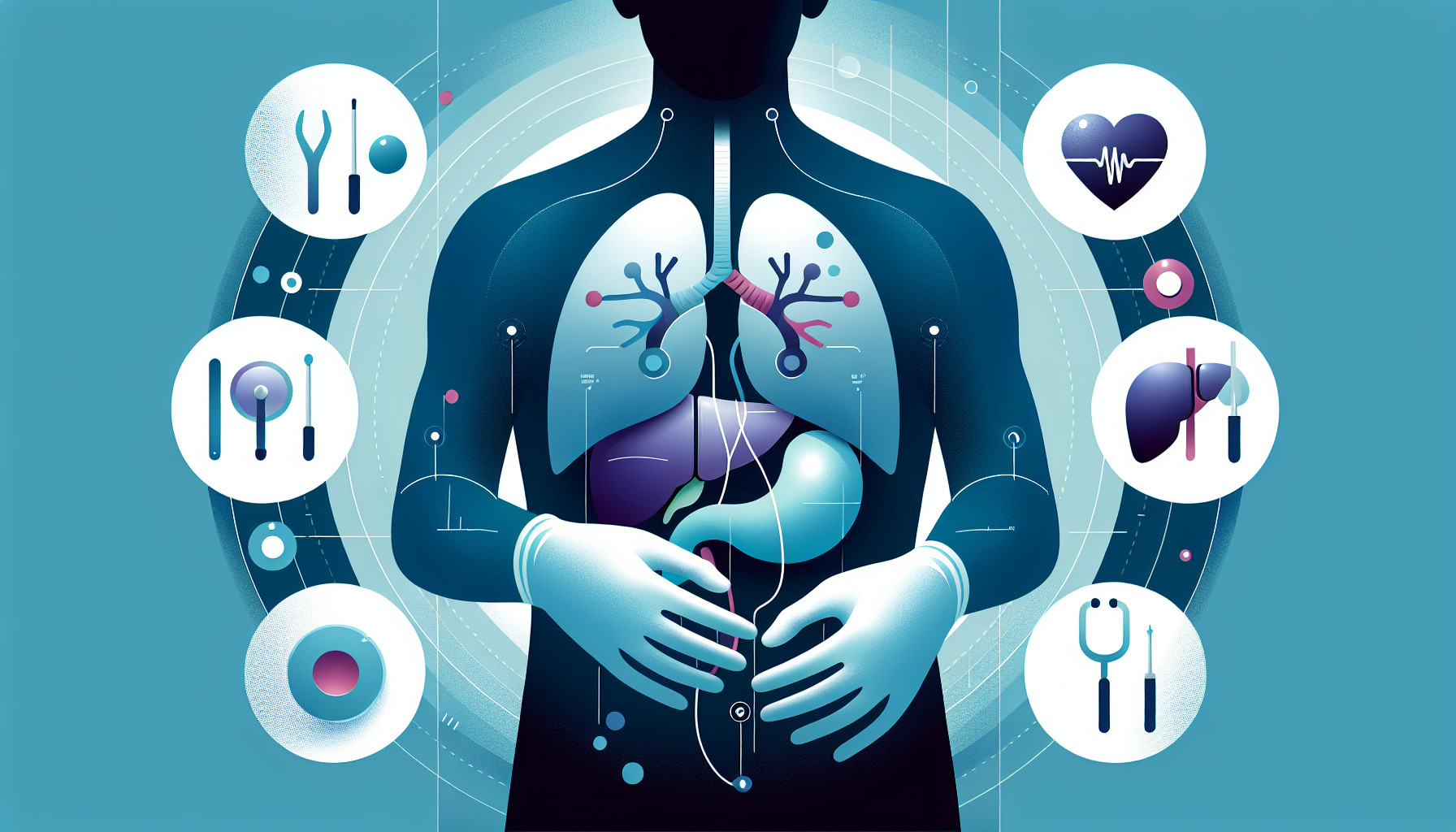Our Summary
This research paper discusses the importance of ongoing care for patients who have received a solid organ transplant (SOT) such as a heart, kidney, liver, or lung. Organ transplantation is a significant medical advancement, but patients require careful management after the procedure to avoid complications and maintain their health. As patients live longer after receiving an organ transplant, they will increasingly become a part of primary care practices. This offers more opportunities for healthcare providers to care for, educate, and conduct research on these patients. The paper provides a comprehensive review of how primary healthcare providers can best manage the care of adult patients who have received an organ transplant.
FAQs
- What is the role of a primary care provider in the management of a solid organ transplantation recipient?
- What are some potential complications that can arise in patients after a solid organ transplant?
- How does the increased longevity of solid organ transplant recipients impact primary care practices?
Doctor’s Tip
One helpful tip a doctor might tell a patient about organ transplant is to always follow their post-transplant medication regimen exactly as prescribed. Missing doses or stopping medications can increase the risk of organ rejection and other complications. It is important to communicate any concerns or side effects to the transplant team so that adjustments can be made as needed. Regular follow-up appointments and monitoring are also crucial for long-term success after transplant surgery.
Suitable For
Patients who are typically recommended for organ transplant are those with end-stage organ failure that cannot be managed with other forms of treatment. Common types of patients who may be recommended for organ transplant include:
- Patients with end-stage kidney disease who require a kidney transplant.
- Patients with end-stage liver disease who require a liver transplant.
- Patients with end-stage heart failure who require a heart transplant.
- Patients with end-stage lung disease who require a lung transplant.
- Patients with certain types of cancer that have spread to the liver and require a liver transplant.
These patients must undergo a thorough evaluation process to determine their eligibility for transplant, including physical and psychological evaluations, as well as tests to assess their overall health and compatibility with a donor organ. Once deemed suitable candidates, they are placed on a waiting list for a compatible organ to become available.
It is important for patients who undergo organ transplant to receive ongoing care and support from a transplant specialist, as well as their primary care provider, to monitor for complications, manage medications, and maintain overall health and well-being.
Timeline
Before organ transplant:
- Patient is diagnosed with end-stage organ failure and is referred to a transplant center.
- Patient undergoes a thorough evaluation to determine eligibility for transplant.
- Patient is placed on the transplant waiting list and waits for a suitable donor organ.
- Patient undergoes surgery to receive the organ transplant.
After organ transplant:
- Patient is closely monitored in the hospital for complications and signs of organ rejection.
- Patient is discharged from the hospital and begins a regimen of immunosuppressive medications to prevent rejection.
- Patient follows up regularly with the transplant team for monitoring and adjustment of medications.
- Patient may experience complications such as infection, organ rejection, or side effects from medications.
- Patient works closely with the transplant team and their primary care physician to manage these complications and maintain overall health.
- Patient may need to make lifestyle changes, such as diet and exercise, to promote the longevity of the transplanted organ.
- Patient may experience an improved quality of life and increased longevity as a result of the successful organ transplant.
What to Ask Your Doctor
- What is the success rate of the specific organ transplant I am considering?
- What are the potential risks and complications associated with the transplant surgery?
- What is the expected recovery time and rehabilitation process after the transplant?
- What medications will I need to take post-transplant and what are the potential side effects?
- How often will I need to follow up with my transplant specialist for monitoring and check-ups?
- What lifestyle changes will I need to make after the transplant to maintain my health?
- How will the transplant affect my immune system and my susceptibility to infections?
- What is the long-term prognosis for someone who receives a transplant?
- What are the signs and symptoms of rejection and what should I do if I suspect rejection is occurring?
- Are there any support groups or resources available for transplant recipients to help with the emotional and psychological aspects of the transplant process?
Reference
Authors: Wong CJ, Pagalilauan G. Journal: Med Clin North Am. 2015 Sep;99(5):1075-103. doi: 10.1016/j.mcna.2015.05.002. PMID: 26320047
